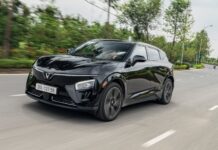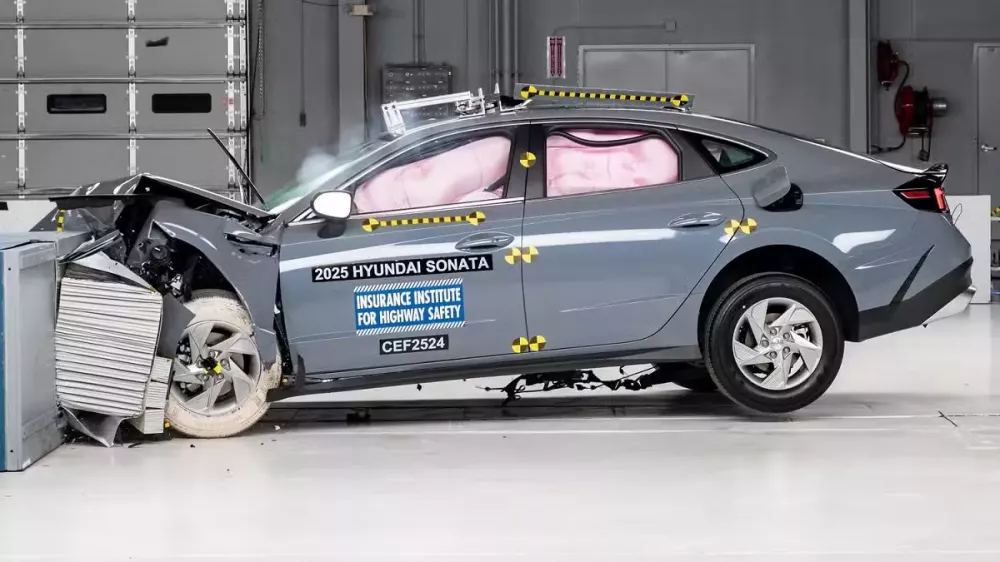The Insurance Institute for Highway Safety (IIHS) has released its list of the safest vehicles on the market, encompassing a range of popular sedans, SUVs, hatchbacks, and electric vehicles. This year’s tests are more stringent, with a particular focus on rear passenger safety.
The current list includes 2025 models that have been tested so far. The vehicles listed below not only offer excellent protection to occupants in various collision scenarios but are also equipped with technology that helps prevent accidents with other vehicles and pedestrians.
| Segment | Model | Rating |
| Small car | Acura Integra | TSP |
| Honda Civic Sedan | TSP | |
| Honda Civic Hatchback | TSP+ | |
| Hyundai Elantra | TSP+ | |
| Kia K4 | TSP+ | |
| Mazda3 Sedan and Hatchback | TSP+ | |
| Toyota Prius | TSP+ | |
| Midsize car | Honda Accord | TSP+ |
| Hyundai Ioniq 6 | TSP+ | |
| Hyundai Sonata | TSP+ | |
| Toyota Camry | TSP+ | |
| Midsize luxury car | Mercedes-Benz C-Class | TSP+ |
| Large luxury car | Genesis G90 | TSP |
| Small SUV | Genesis GV60 | TSP+ |
| Honda HR-V | TSP+ | |
| Hyundai Ioniq 5 | TSP+ | |
| Hyundai Kona | TSP+ | |
| TSP+ | ||
| Mazda CX-30 | TSP+ | |
| Mazda CX-50 | TSP+ | |
| Subaru Forester (excluding Widerness trim) | TSP | |
| Subaru Solterra | TSP+ | |
| Toyota bZ4X | TSP+ | |
| Midsize SUV | Chevrolet Traverse | TSP |
| Ford Mustang Mach-E | TSP+ | |
| GMC Acadia | TSP | |
| Honda Pilot | TSP | |
| Hyundai Santa Fe (produced after 11/1/2024) | TSP+ | |
| Kia EV9 | TSP+ | |
| Kia Telluride | TSP+ | |
| Mazda CX-70 and CX-70 PHEV | TSP+ | |
| Mazda CX-90 and CX-90 PHEV | TSP+ | |
| Nissan Murano | TSP+ | |
| Nissan Pathfinder | TSP+ | |
| Subaru Ascent | TSP | |
| Midsize luxury SUV | Acura MDX | TSP |
| Audi Q6 E-Tron | TSP+ | |
| BMW X5 | TSP+ | |
| Buick Enclave | TSP+ | |
| Genesis GV70 (produced after 4/1/2024) | TSP+ | |
| Genesis Electrified GV70 | TSP+ | |
| Genesis GV80 | TSP+ | |
| Infiniti QX60 | TSP | |
| Lexus NX | TSP+ | |
| Lincoln Nautilus | TSP+ | |
| Mercedes-Benz GLC | TSP+ | |
| Mercedes-Benz GLE | TSP+ | |
| Volvo XC90 (produced before 12/2024) | TSP+ | |
| Volvo XC90 Plug-In Hybrid (produced before 12/2024) | TSP | |
| Large SUV | Audi Q7 | TSP+ |
| Infiniti QX80 | TSP+ | |
| Nissan Armada | TSP+ | |
| Rivian R1S (produced after 8//2024) | TSP+ | |
| Large pickup | Toyota Tundra (Crew Cab) | TSP+ |
| Rivian R1T | TSP |
List of the safest vehicles for 2025 according to IIHS.
IIHS, a safety organization funded by the insurance industry, conducts crash tests, evaluates automatic emergency braking (AEB) systems, and assesses headlights. Based on their performance, the safest vehicles are awarded the Top Safety Pick (TSP) or Top Safety Pick+ (TSP+) title. The criteria for these awards have become more stringent over time, driving the automotive industry to continuously improve consumer protection.
How IIHS Evaluates Vehicle Safety
IIHS began publishing safety ratings in 1995 and introduced the Top Safety Pick (TSP) award in 2006. Starting in 2025, to earn the TSP or TSP+ designation, a vehicle must pass more rigorous tests than in previous years.
The criteria for the 2025 IIHS Top Safety Pick rating are as follows:
- A rating of “Acceptable” in the updated moderate overlap front crash test. This test simulates a vehicle veering into oncoming traffic, with 40% of the vehicle’s front end striking a similar-sized vehicle at 40 mph. This requirement is more stringent than in previous years.
- A rating of “Good” in the side crash test.
- A rating of “Good” in the driver-side and passenger-side small overlap front crash tests, simulating collisions with trees, poles, or the front end of another vehicle.
- A rating of “Good” or “Acceptable” in the front crash prevention: pedestrian test and headlight evaluation.
The criteria for the IIHS Top Safety Pick+ rating are as follows:
- The vehicle must meet all the TSP criteria, plus the additional requirement of a “Good” rating in the updated moderate overlap front crash test.
Over time, IIHS has continuously raised the standards for earning the TSP designation. For example, in 2024, vehicles only needed to achieve an “Acceptable” rating in the moderate overlap front crash test to qualify for TSP+. However, in 2025, this standard was tightened, requiring a “Good” rating for TSP+.
As a result, only 48 vehicles made the cut for TSP and TSP+ in 2025, compared to 71 vehicles in 2024. This doesn’t mean that the excluded vehicles have become less safe; it simply reflects the stricter evaluation criteria. It showcases the evolving safety standards that push the automotive industry to continuously enhance consumer protection.
Notably, the 2025 list of safe vehicles doesn’t include any minivans and only features two pickup trucks. “It’s disappointing that there are no minivans on the list, as they are marketed as family vehicles, and crew and extended cab pickups are often used for the same purpose,” said David Harkey, president of IIHS.
The gradual changes in IIHS’s crash test procedures are often based on real-world accident data. In the moderate overlap front crash test, IIHS now includes an additional dummy in the rear seat, directly behind the driver, to assess rear passenger protection. Starting in 2024, IIHS also added criteria for evaluating pedestrian and rear passenger protection. The side crash test was also updated in 2021.
According to Jennifer Stockburger, director of operations at Consumer Reports’ Auto Test Center, these changes by IIHS compel automakers to innovate. “IIHS tests present new challenges for vehicles, better simulating real-world crashes and evaluating the effectiveness of crash avoidance technologies. Automakers typically respond by redesigning their vehicles to meet these requirements,” said Stockburger.









































